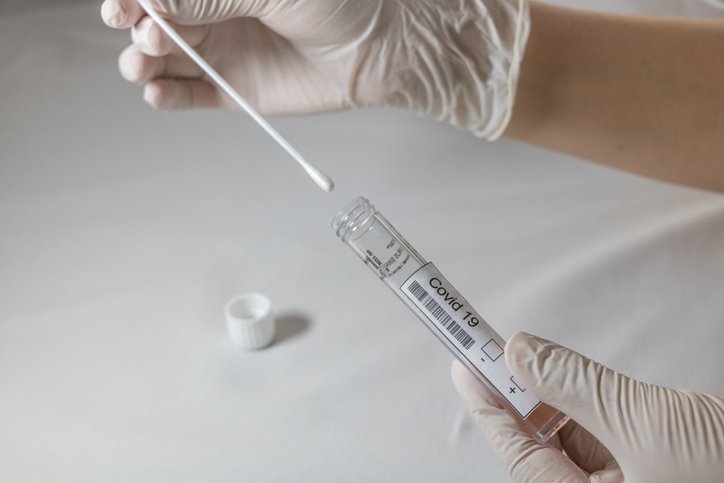Contacts to general practice from patients with Covid-19 symptoms have “fallen off a cliff” following the HSE cyberattack, raising concerns among GPs about a lack of clinical guidance around public health testing measures.
GPs have been unable to refer patients for Covid-19 testing since the HSE shut down its IT systems after a sophisticated ransomware attack.
All individuals, whether symptomatic or not, are attending HSE testing centres for PCR testing without appointment. It is not yet known when appointments will resume. Today, the HSE has opened an online appointment booking system for patients that can be used for three testing centres (patients can also present to these centres without booking an appointment).
According to Dublin GP Dr Ray Walley, GPs are “flying blind” as patients have stopped making contact for advice and are instead going directly to centres for testing.
“Some patients are falsely reading ‘not detected’ test results as negative results and returning to work straightaway. But what many people do not realise is that you must be two days well and symptom free before you can exit from isolation. This is where the importance of the GP consultation comes in,” he said.
“The case positivity rate is still quite high but the engagement with GPs does not reflect this.”
This view was an observation and not a criticism of people, who may genuinely not realise or correctly understand the guidelines, he said.
Dr Walley said that GPs are busy catching up on non-Covid work but stressed that the lack of contact from patients on Covid-19 was concerning given the relatively high number of cases nationally, with about 300-400 cases reported daily.
He said that following the gathering of large crowds in Dublin last weekend there would be an increase in cases in the region in about 10-14 days.
A huge information vacuum on Covid-19 data now exists, including where incidence rates are high and how many people attending testing centres are symptomatic, as HSE systems remain disabled.
On Friday 28 May, HSE Chief Clinical Officer Dr Colm Henry issued an update to GPs on the impact of the cyberattack.
“This required GPs to carry additional clinical risk and added significantly to the challenges and stresses of delivering patient care. We are working to put in place specific arrangements to provide a range of specific pathways to support general practice to the greatest extent practical through this difficult period,” wrote Dr Henry.
“In relation to the restoration of ICT systems, significant progress has been made with iPMS (Integrated Patient Management Systems) over last 24 hours and the majority of diagnostic imaging is up and running in a limited way.
He urged GPs to continue to limit urgent requests for bloods and again highlighted the significant clinical risks posed to patients.
A temporary curtailed schedule of essential laboratory tests has been established, he added.
“I recognise that this is very limited, and as more capacity becomes available in the coming days we will expand the range of tests available,” he said.
“This will help mitigate against the clinical risk of limited access to laboratory testing in the wider health system.”
But he cautioned that capacity remained “significantly reduced” and asked that for the “coming weeks” only samples which are required to guide current management decisions be submitted.
“Submission of samples from clinically stable patients or as part of general health checks should be deferred.”













Leave a Reply
You must be logged in to post a comment.